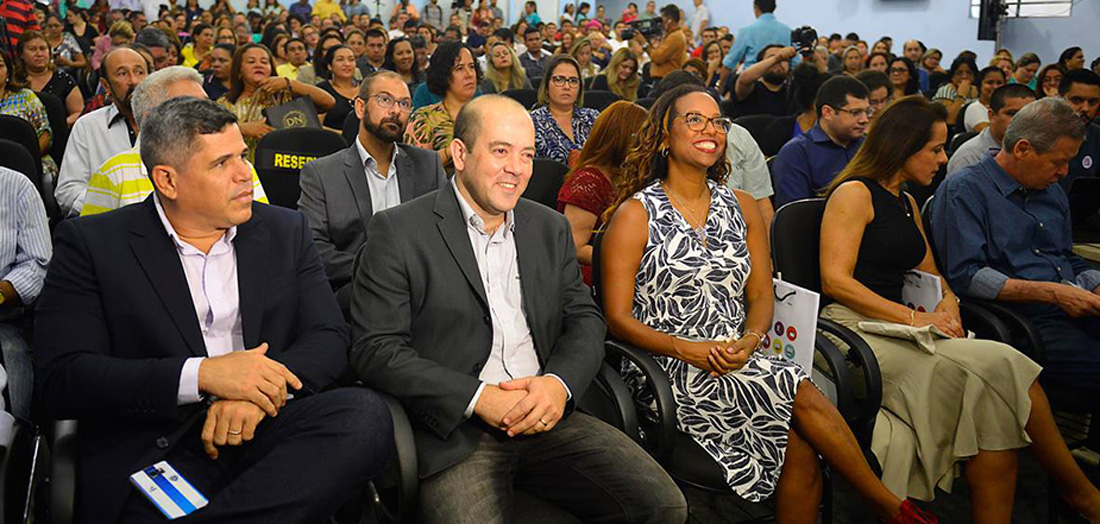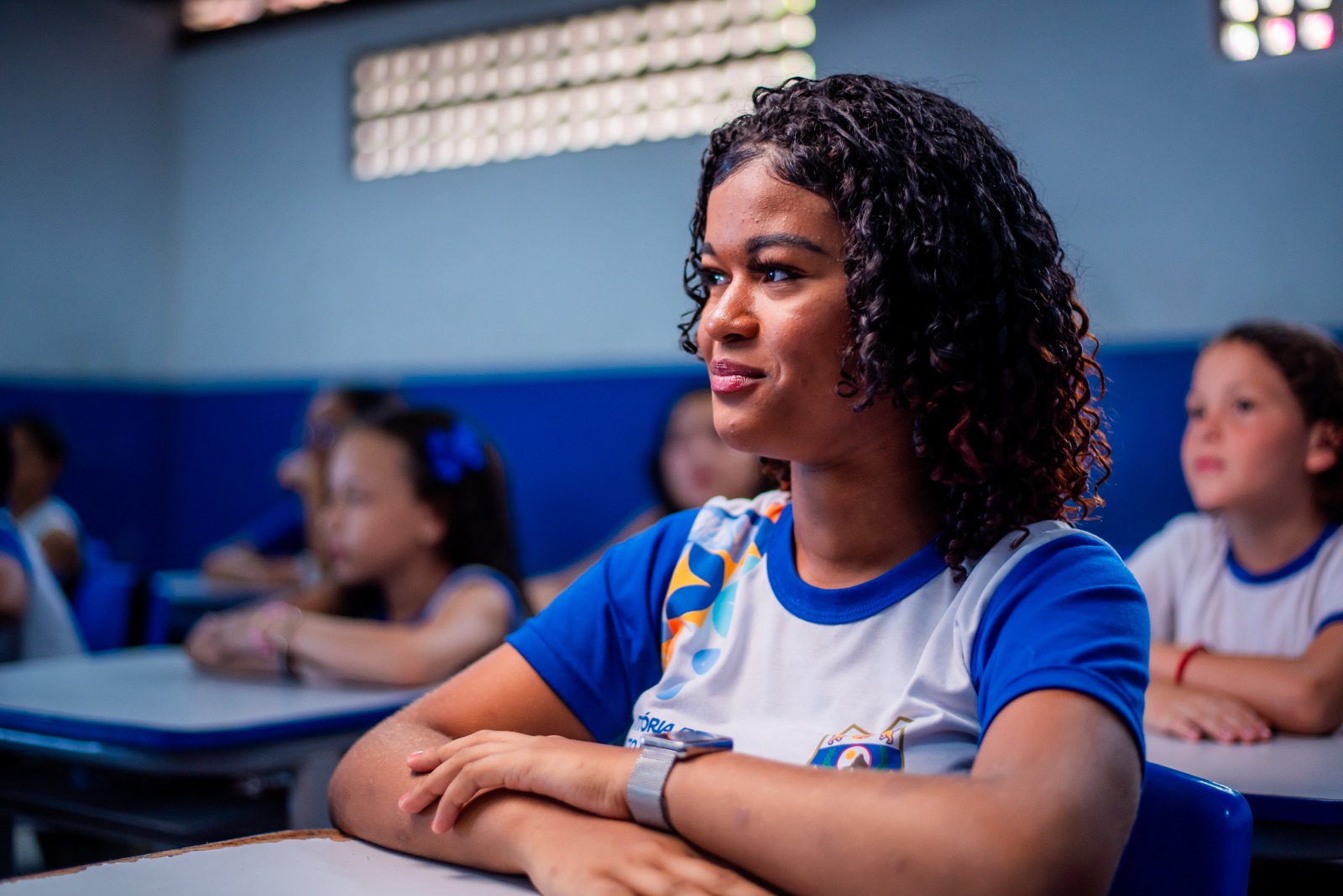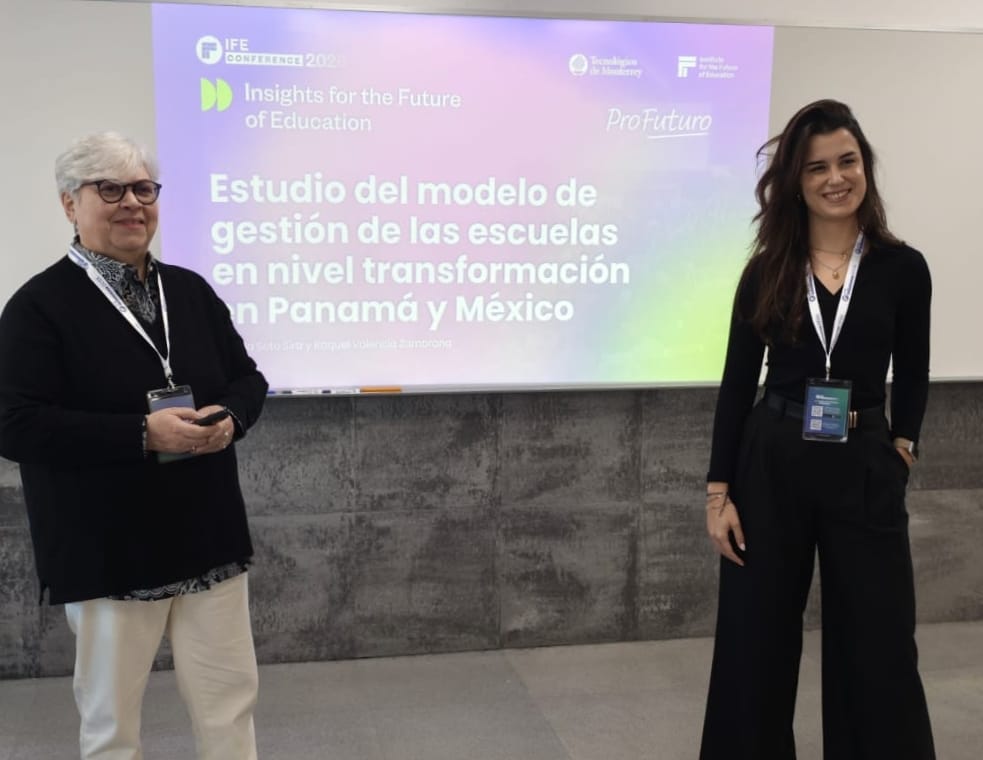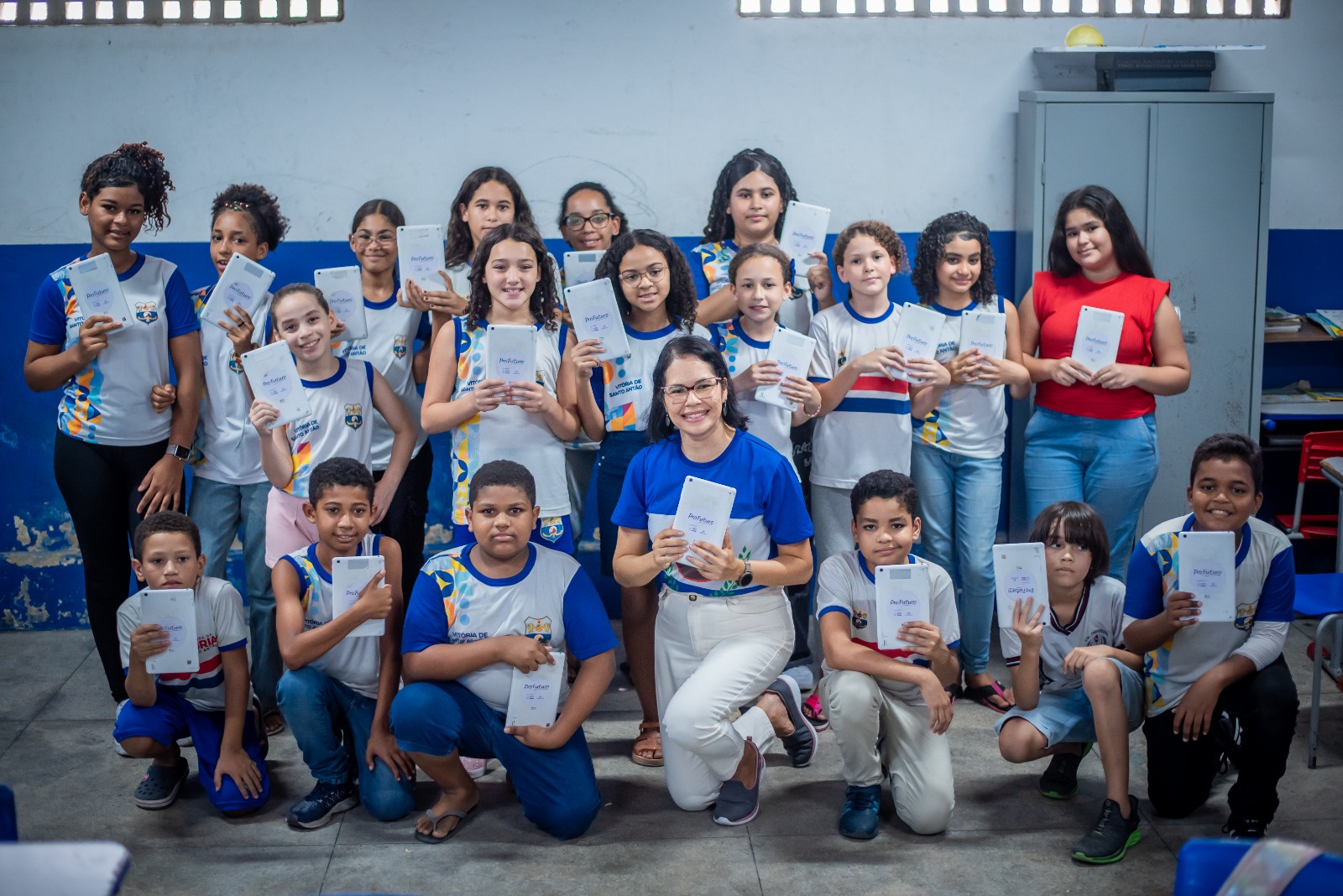ProFuturo has arrived in Brazil to strengthen and expand the work of educators in vulnerable settings. The project has been implemented in the rural area of Manaus and aims to benefit 140 schools and 30,000 primary school students. The initiative was launched on 20 April to an audience of 230 educators and municipal authorities among whom was the prefect, Arthur Virgílio Neto, who praised the importance of this agreement for the present and future of the students.
Most of the students at the Manoel Adriano Municipal School, in the rural area of Manaus, live in regions remote from the city, where access to technology and transport is precarious. Every day they travel long distances to get to school where they spend most of their time and eat their main daily meals.
This is a common scenario in the state capital of Amazonas, an area that is geographically complex and highly socially vulnerable, with schools in rural and riverside areas and in isolated indigenous communities.
In 2016, the lives of the students took on a new perspective when Manoel Adriano was selected to take part in ProFuturo, which seeks to improve opportunities for children in vulnerable areas through incorporating technology into schools and new methodologies for the teaching-learning process.
In total, 140 schools in the region will be incorporated in 2017 and it is estimated that nearly 30,000 students will benefit from the project over the next three years.
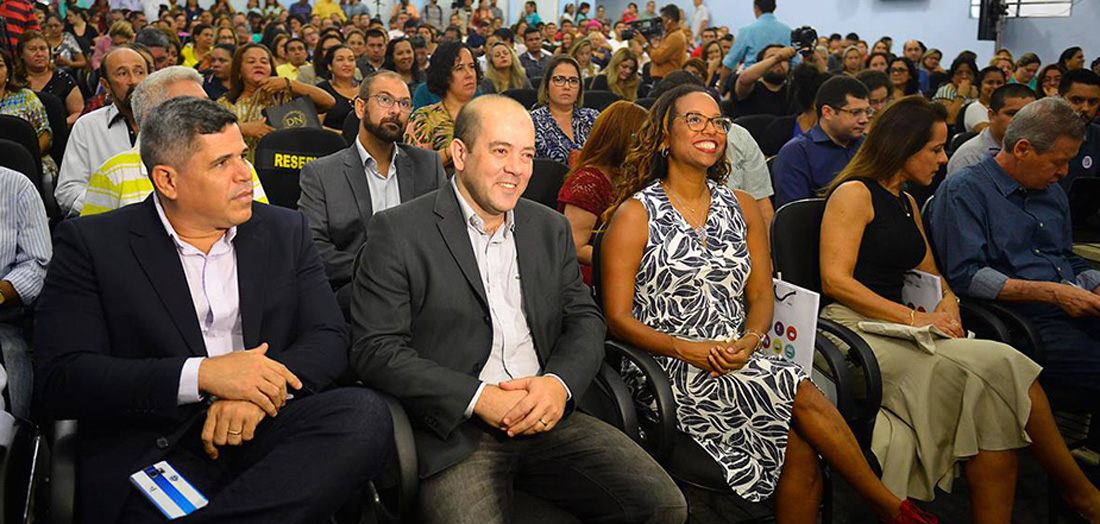
In practice
Each educator will receive 40 hours of face-to-face training on topics relating to educational innovation and access to digital teaching content in a collaborative virtual learning environment. The schools will benefit from kits comprising a mobile case containing a notebook, router and tablets for students, as well as a projector and screen so that the content can also be made available in places where there is no infrastructure or connections.
‘The project represents a huge gain for students in rural areas, who are still a long way behind children in urban centres. Now they will be able to view the world with new perspectives and come up with dreams that could be fulfilled in the not too distant future’, says Robert Andrey, director of the Manoel Adriano School.
Association with the local government
Manaus is the first city in the country to take part in collaboration with the city’s Municipal Secretariat of Education. The initiative was made official on 20 April at an event attended by 230 educators, partners and local government authorities. Among them was the prefect Arthur Virgilio Neto, who praised the importance of the association for the present and future of the students:
‘We are honoured to be chosen as the first city in Brazil to take part in such an important project for education. We have to put education at the forefront of our concerns, as it forms the basis of a free and developed society’, said the mayor.
Innovative transformations
For Americo Mattar, president of the Telefónica Vivo Foundation, the richness of ProFuturo – Digital Classroom lies precisely in the infinite innovative possibilities that can emerge from the alliance. ‘This initiative is a milestone in our action plan and is an opportunity to use technology as a tool at the service of education. There is no rigid model, every school is free to innovate as they see fit, using the human factor is a focal point’.
If it all depends on the motivation of the educators, the human factor will prove to be main distinguishing feature of the participating schools. Nizia Feitoza, director of the Francisca Lima da Rocha Municipal School, also in Manaus was one of the managers most enthused by the possibility of bringing technology to low income students.
She said ‘When the project was explained to me, I was delighted about the possibility of including new forms of learning, not only for the students but also for our teachers. Those working in education need to be forward-looking and that is what we are doing here today’.



